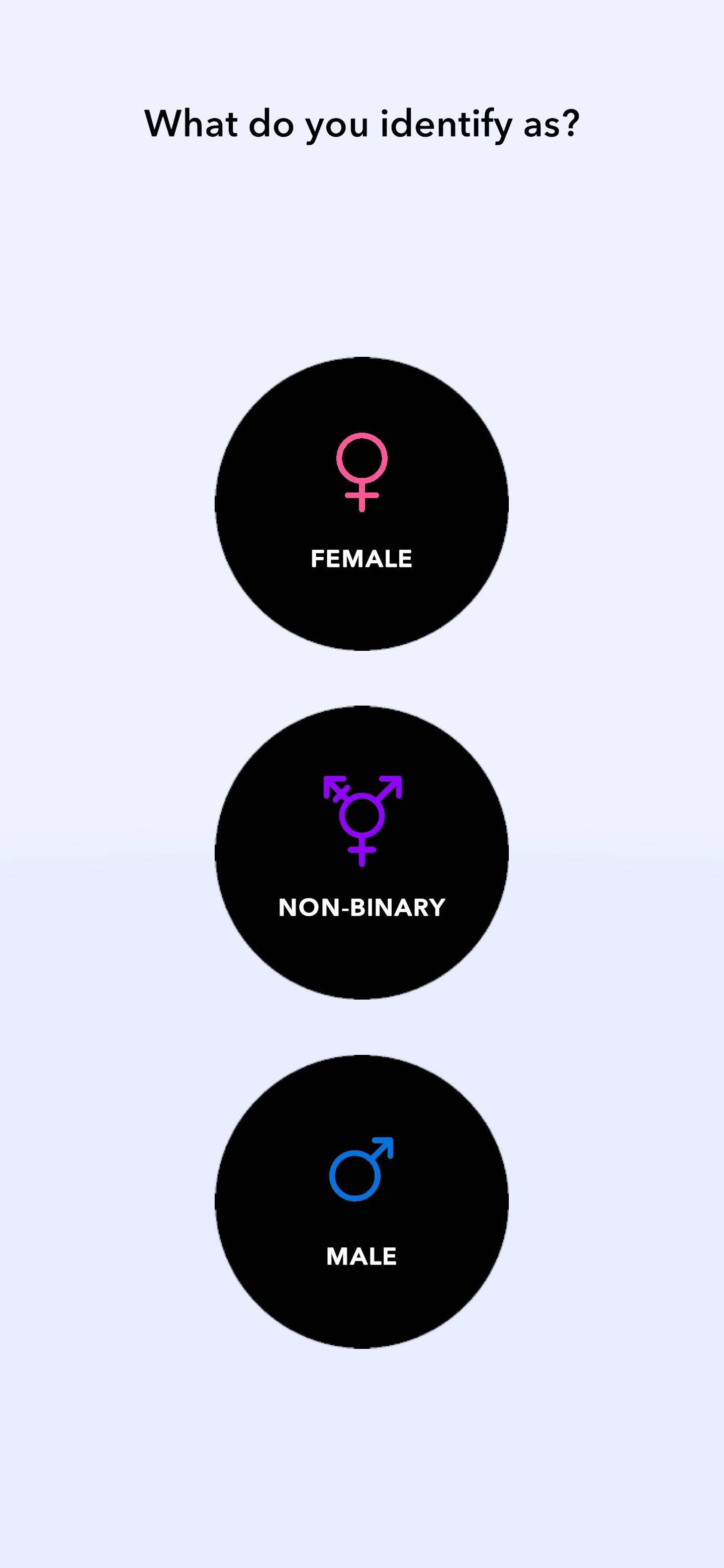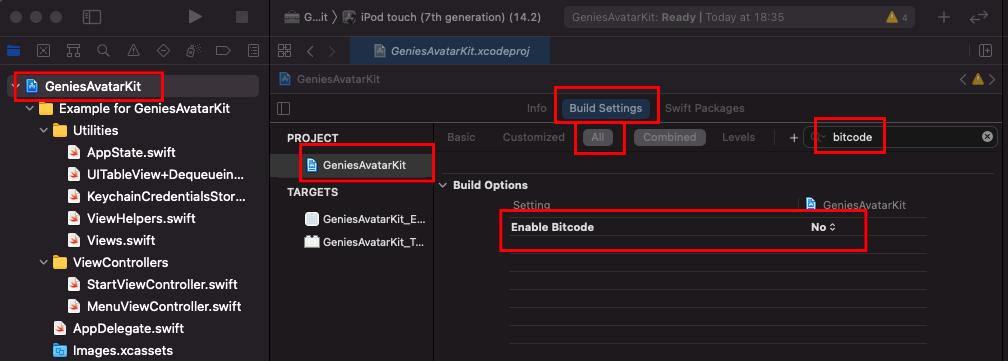Avatar Creator#
The Avatar Creator is a SDK component that lets the user build their own personalized Avatar.

![]()
The Avatar Creator is a Unity plugin made available through an Android Library and an iOS Library.
Android#
To make the Avatar Creator easier to integrate in your Android App we created a library: https://github.com/geniesinc/android-composer-library
Integration#
To integrate the Avatar Creator library follow these steps:
- Open build.gradle (project) file and add to allprojects/repositories:
maven { url 'https://jitpack.io' credentials { username authToken } } - Open gradle.proprties and add:
The
authToken={{YOUR_AUTH_TOKEN}}authTokenwill be provided when applying for a Partner Account. - Open build.gradle (Module: app) file. Add to dependencies:
implementation 'com.github.geniesinc:android-composer-library:0.0.11' -
Open strings.xml and add:
Avatar Creator -
The Avatar Creator needs to be loaded in a separate activity with a dedicated process attached. The Avatar Creator Unity plugin kills the current process when it unloads.
-
In the activity, to add the Avatar Creator view:
val composerCallback = object: GeniesComposerLoader.ComposerCallback { override fun onComposerLoaded() { Log.d(TAG, "Composer loaded") pb_loading.visibility = View.GONE } override fun onComposerUnloaded() { Log.d(TAG, "Composer unloaded") } } GeniesComposerLoader.loadGeniesComposerIntoView( parentView = composer_container, lifecycleOwner = this, credentialsJson = testCredentials, composerCallback = composerCallback )
The credentialsJson should be a JSON String containting:
- the user
userId - the Partner's API Account Refresh Token
- the Partner's API Key provided when applying for the Partner Account
Example
{
userId: {{AVATAR_USER_ID}},
refreshToken: {{PARTNER_API_ACCOUNT_REFRESH_TOKEN}},
apiKey: {{PARTNER_API_KEY}}
}
Callbacks#
When loading the Avatar Creator you can supply a GeniesComposerLoader.ComposerCallback.
onComposerLoaded() getts called when the Avatar Creator finishes loading the user Avatar and is ready to be visible on screen.
onComposerUnloaded() getts called when a user action (SAVE, QUIT) triggers the closing of the Avatar Creator.
iOS#
Installation#
You can install the iOS Genies Avatar library via Cocoapods:
-
Add
pod "GeniesAvatarKit", git: "https://github.com/geniesinc/GeniesAvatarKit.git"(proper github credentials are required) -
Disable Bitcode in XCode project settings - In XCode go to your
project settings>Build Settings> Make sureAllis selected and search forbitcode- Set it toEnabled = No

- In AppDelegate add the following:
import Foundation
import UIKit
import GeniesAvatarKit
// Required
import MachO
@UIApplicationMain
class AppDelegate: UIResponder, UIApplicationDelegate {
var window: UIWindow?
func application(_ application: UIApplication, didFinishLaunchingWithOptions launchOptions: [UIApplication.LaunchOptionsKey : Any]?) -> Bool {
window = UIWindow(frame: UIScreen.main.bounds)
// Add the following:
UnityLoader.setHostMainWindow(window)
UnityLoader.setLaunchOptions(launchOptions)
let machineHeader = UnsafeMutablePointer<mach_header_64>.allocate(capacity: 1)
machineHeader.pointee = _mh_execute_header
UnityLoader.machineHeader = machineHeader
window?.rootViewController = StartViewController()
window?.makeKeyAndVisible()
return true
}
}
Loading#
Loading the composer is then done anywhere in the app by using UnityLoader.loadComposerWithCredentials:
func loadUserInUnity(_ user: AvatarAPIClient.User) {
guard let refreshToken = AvatarAppState.shared.credentials?.refreshToken else {
print("Error: The refresh token does not exist")
return
}
let credentials = AvatarComposerCredentials(userId: user.userId,
refreshToken: refreshToken,
apiKey: AvatarAppState.shared.client.apiConfig.apiKey)
guard let jsonCredentialsString = credentials.jsonString else {
print("Error: Cannot create composer credentials JSON")
return
}
UnityLoader.loadComposerWithUserCredentials(jsonCredentialsString) {
UnityLoader.showUnity()
}
}
You can read more about the AvatarAppState object here
Unloading#
Unloading the composer is done via UnityLoader.hideUnity()